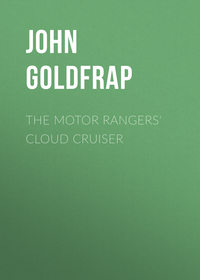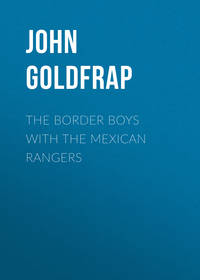 полная версия
полная версияThe Boy Scouts' Mountain Camp
“Indians were many and hostile in those days, so in order to be secure in case of an attack, the elder brother had no sooner buried his kin with due reverence, and received his legacy, than he decided to secrete the entire amount of the old pirate’s treasure in a cave in a remote part of the Adirondacks.”
“Gee!” exclaimed Tubby, who was hugging his knees, while his eyes showed round as saucers in his fat cheeks.
“Did the Indians get it?” asked Hiram.
“Wait a minute, and you shall hear,” continued the major. “Well, as I said, the treasure was buried in a cave so securely hidden that nobody would be able to find it again, except by a miracle, or by aid of the chart of the spot, which Chisholm Dangerfield carefully made. A few nights after that, a tribe went on the warpath, landed in canoes near to the Dangerfield farm, and massacred every soul on the place but one – a young boy named Roger Dangerfield, who escaped.
“This Roger Dangerfield was my great-great-grandfather. With him, when he fled from the burning ruins, he took a paper his father had thrust into his hands just before the Indian attack came. All this he wrote in his diary, which did not come into my hands till recently. Well, Roger Dangerfield, left to his own resources, proved so able a youth that he was, before very long, a prosperous merchant in Albany. But in the meantime he made several expeditions to the mountains to try to find the hidden wealth.
“I should have told you that the paper was in cipher, and a very elaborate one, so that it had never been completely worked out. This, no doubt, accounts for Roger Dangerfield’s failure.
“Well, in course of time, the cipher became a family relic along with Roger Dangerfield’s diary. His descendants moved to Virginia, where I was born. I recollect, as a youngster, being enthralled by the story of the old piratical Dangerfield’s hidden gold, and resolving that when I grew up I would find it. We had, in our employ at that time, a butler named Jarley. I was an only child, and he was my confidant. I naturally told him about the cipher and what its unraveling would mean.
“This happened when I was about eighteen and home on a vacation. Jarley seemed much interested, but after both he and I had puzzled in vain over the cipher, we gave it up. When I came home on my next vacation, I learned that Jarley had left. His mother and father had died, he declared, and he was required at his home in Maine. Well, I thought no more of the matter, and forming new acquaintances in our neighborhood, which was rapidly settling, I soon forgot Jarley. But one day a notion seized me to look at the cipher and the diary again.
“But when I came to look for them, they had gone. Nor did any search result in my finding them. It at once flashed across my mind that Jarley might have taken them. So fixed an idea did this become, that I visited the place in Maine to which he said he had gone, only to find that he had removed soon after his return from Virginia. However, pursuing the trail, I found that he – or a man resembling him – had visited the spot on the lake where the old-time house had stood, and had made a mysterious expedition into the mountains. The spot was at that time known as Dangerfield, and was quite a flourishing little town, with a pulp mill and a few other local industries. In that quiet community they recollected the mysterious visitor well.
“However, as I learned, Jarley had left the town without paying his guides or the man from whom he had hired the horses, I concluded that the expedition had not been successful. Then I advertised for the man, but without success. Then I was appointed to West Point, and for a long time I thought no more of the matter. In fact, for years it lay dormant in my mind, with occasional flashes of memory; then I would advertise for Jarley or his heirs, but without success.
“The last time I advertised was about a year ago. After six months’ silence I received a letter, asking me to call at an address near the Erie Basin in Brooklyn, if I was interested in the long-lost Jarley. All my enthusiasm once more at fever heat, I set out for the place. The address at which I was to call I found to be a squalid sailors’ boarding-house. On inquiring there for James Jarley, the name signed to the letter, I was conducted into a dirty room, where lay a rough-looking sailor, evidently just recovering from the effects of a debauch.
“So dulled was his mind, that it was some time before I could explain my errand, but finally he understood. He frankly told me he was out for money, and wanted to know how much I would give him for some papers he had which his father – our old butler, it transpired – had left him. His father, he said, had told him that if ever he wanted to make money with them he was to seek out a Major Dangerfield, who would be likely to pay him well for them.
“But it appeared that his father had also told him that he stood a chance of arrest if he did so, and that it might be a dangerous step. However, he told me that he had at length decided to take that chance, and on a return from a long voyage, during which he had encountered my advertisement in an old newspaper in a foreign port, he had made up his mind to find me on his return.
“His father, it appeared, had always kept track of me, but fear and shame had kept him from trying to arrange a meeting. The son, I gathered, both from his conversation and the situation in which I found him, had always been a ne’er-do-well. Well, the matter ended with my paying him a sum of money for the papers, which as I suspected, proved to be the yellow-paged old diary and the well-thumbed, tattered cipher. Then I had him removed to a hospital, where a few days later he died in an attack of delirium.”
CHAPTER IV
THE NARRATIVE CONTINUED
“But it appeared that even while on his deathbed the man had been playing a dishonest game. Before he had made his bargain with me, he had revealed the secret and tried to sell it to a certain money-lender at a seaport in Maine. This man had refused to have anything to do with what he thought was a chimerical scheme, but later confided the whole thing to a friend of his by name Stonington Hunt – a former Wall Street man, who had been compelled to quit in disgrace the scene of his financial operations.”
“Stonington Hunt!” gasped Rob, leaning forward in his chair, while the others looked equally amazed.
“Yes, that was the name. Why, do you know him?”
“Know him, Major!” echoed Mr. Blake. “He was concerned in some rascally operations in this village not so long ago. That he left here under a cloud, was mainly due to activities of the Boy Scouts, whose enemy he was. We heard he had gone to Maine. Is he engaged in new rascality?”
“You shall hear,” pursued the major. “Well, as I said, this seaport money-lender told Stonington Hunt of the chart and cipher and the old diary recording the burial of the treasure. Hunt, it would seem, placed more importance on the information than had the money-lender, for he agreed, provided the latter would help to finance an expedition, to try to solve the cipher, or else have some expert translate it. He set out at once for Brooklyn, arriving there, as I subsequently learned, just after I had departed with the diary and the papers which young Jarley had carried in his sea-chest for some years.
“He lost no time in tracing me, and offered me a large sum for the papers. But my interest had been aroused. For the sake of the adventure of the thing, and also to clear up the mystery, I had resolved to go treasure hunting myself. With this object in view, I rented a bungalow on a lake not far from the range in which I suspected the treasure cave lay, and devoted days and nights trying to solve the cipher. At this time a college professor, an old chum of mine, wrote me that his health was broken down, and that he needed a rest. I invited him to come and visit me in Essex County, at the same time suggesting that I had a hard nut for him to crack. Professor Jeremiah Jorum arrived soon after, and his health picked up amazingly in the mountain air. One day he asked about ‘the hard nut.’ I produced the cipher, and told him something of its history. Perhaps I should have told you that Professor Jorum has devoted a good deal of his life to what is known as cryptology – or the solving of seemingly unsolvable puzzles. He had translated Egyptian cryptograms and inscriptions left by vanished tribes on ruins in Yucatan and Old Mexico.
“He worked for several days on the cipher, and one day came to me with a radiant face. He told me he had solved it. No wonder I had failed. It was a simple enough cipher – one of the least complex, in fact – but the language used had been Latin, in which my ancestor, as a well-bred Englishman of that day, was proficient. As he was telling me this, I noticed a man I had hired some days before, hanging about the open windows. I ordered him away, and he went at once. But I had grave suspicions that he had overheard a good deal more than I should have wished him to. However, there was no help for it. I dismissed the matter from my mind, and we – the professor and I – spent the rest of the day discussing the cipher and the best means for recovering the treasure. We agreed it would be dangerous to take men we could not absolutely trust, and yet, we should require several people to organize a proper expedition.
“But, as it so happened, all our plans had to be changed that night. I was awakened soon after midnight by a noise in my room. In the dim light I saw a figure that I recognized as our gardener, moving about. The lamp beside my bed had, for some reason, not gone out when I turned it down on retiring, and I soon had the room in a blaze of light. The intruder sprang toward me, a big club in his hand. I dodged the blow and grappled with him. In the struggle his beard fell off, and I recognized, to my amazement, that our ‘gardener’ was Stonington Hunt himself.
“The shock of this surprise had hardly been borne in upon me when the fellow, who possessed considerable strength, forced me back against the table. In the scuffle the lamp was upset. In a flash the place was in a blaze. Hunt was out of the room in two bounds. He seized the key, as he went, and locked the door on the outside, thus leaving me to burn to death, or chance injury by a leap from the window, which overhung a cliff above the lake. I had just time to throw on a few clothes and grab the papers, which I had luckily placed under my pillow, before the flames drove me out. The wood of the door was flimsy, and without bothering to try to force the lock, I smashed out a panel. Crawling through, I aroused my friend Jorum and my old negro servant, Jumbo.
“We saved nothing but the precious papers, but as the bungalow was roughly furnished, I did not much care. We made our way to a distant house and stayed there the night. The next day we took a wagon to the shore of the lake and went by boat to Whitehall. There we embarked on a train for Albany, where my daughter was at the home of friends. I, too, have a residence there, but, having received an invitation from friends to visit them on Long Island, I decided to give my little girl a motor trip.
“But while in Albany I perceived I was being followed, and by the two men whom you have described to me as taking part in the filching of the wallet. I thought I had thrown them off, however, but your adventure to-day proves that I have not been as successful as I hoped. The most unfortunate part of it is that the cipher was in that wallet.”
“And it’s gone,” groaned Tubby dolorously.
“I’m not so sure of that. I am hopeful that we may recover it,” said the retired officer. “I have wired my friend Jorum, who, with Jumbo, is now in New York, and I am in hopes that he can recollect something of his translation of the cipher. If not – well, there’s no use crossing bridges till we come to them.”
“If you do recover it?” asked Rob.
“If I do, I am going to ask your parents to let me borrow a patrol of Boy Scouts to aid in the treasure hunt,” smiled the major.
“My dear Major,” cried Mr. Blake, holding up his hands, “Mrs. Blake would never consent to – ”
“But there would be such a lot of fun, dad,” urged Rob. “Think of a camp in the mountains. We’d have to camp, wouldn’t we, Major?”
“Certainly. It would be a fine opportunity for you to perfect yourselves in – ”
“Woodcraft,” said Tubby.
“Signaling,” put in Merritt.
“I’ve got a field wireless apparatus I’d like to try out,” put in Hiram, his voice a-quiver with eagerness.
“Well, the first thing to be done is to recover that cipher,” said the major; “at present all we know of it is that it is in the hands of two rascals.”
“In the employ of another rascal, Stonington Hunt,” put in Rob.
“Well, we can do nothing more to-night,” said the major.
“No. We were so interested in your story that I think none of us noticed how the time flew by,” said Mr. Blake, and Mrs. Blake, entering just then, announced that there was supper ready for the party in the dining-room. Tubby’s eyes glittered at this news.
Soon after the sandwiches, cakes and lemonade had been disposed of, the Boy Scouts set out for home, agreeing to meet the major next morning after breakfast.
They had not gone many steps from the house when Tubby stopped as suddenly as if he had been shot.
“Gingersnaps!” he exclaimed. “I’ve just thought of something.”
“Goodness! Must hurt,” jeered Merritt unsympathetically.
“No – that is, yes – no, I mean,” sputtered the fat boy. “Say, fellows, I heard this afternoon that Sam Phelps from Aquebogue told a fellow in the village that he had seen Freeman Hunt over there this morning.”
“You double-dyed chump,” exclaimed Rob, who was walking a way with them, “and you never said anything about it. If Freeman was there, I’ll bet his father was, too, and that’s where those two men have gone.”
“Gee whiz, if they have they must be there yet, then!” exclaimed Merritt, excitedly, “unless they left by automobile.”
“How’s that?” demanded Rob.
“It’s this way. There was no train after those chaps took the wallet, till almost eight o’clock. They must have hidden in the woods and caught it some place below, unless Si arrested them.”
“He’d have been at the house to get the reward if he had,” rejoined Rob.
“Very well, then. He didn’t catch them, and if the Hunts are at Aquebogue, that’s where they’ve gone.”
“Yes, but what’s to prevent them leaving there?”
“No train after nine-thirty till to-morrow morning, and the eight o’clock from here doesn’t get to Aquebogue till after that time; so they must be stranded there, unless they have a car.”
“Cookies and cream cakes! That’s right!” cried Tubby, “let’s phone the police at Aquebogue to look out for them.”
But the lads found that the wire between Hampton and Aquebogue wasn’t working. The telegraph office was closed. They exchanged blank glances.
“What are we going to do?” demanded Tubby.
“What all good scouts ought to do – the best we can,” – rejoined Rob.
“And that is, under the present circumstances?” questioned Merritt.
“To go to our garage – Blenkinsop’s – on Main Street, and get out the car.”
“It’ll be closed,” rejoined Tubby.
“I’ve got a key,” replied Rob; “I’ll ’phone the house that I’m going for a night spin. We can get there, notify the police, and be back in two hours.”
“Forward, scouts!” ordered Merritt, in sharp, “parade-ground” tones, “and ‘Be Prepared’ for whatever comes along.”
Rob found that the telephone to his home was also out of order, owing to repairs which were being rushed through by night. So ten minutes later, when the car glided out of the garage on Main Street and slipped silently through the sleeping town, there was nobody in Hampton who knew the Boy Scouts’ night mission.
CHAPTER V
A MIDNIGHT AUTO DASH
The auto, a fast and heavy machine, plunged along through the night at a great rate. Its bright searchlight cast a brilliant circle of radiance far ahead into the darkness. Occasionally frightened birds could be seen flying out of the inky hedges, falling bewildered in the path of the white glare.
It was exhilarating, blood-stirring work, all the more keenly delightful from the sense of adventure with which it was spiced.
Rob was at the wheel, steering straight and steady. He knew the road well. Part of it had been the scene of that thrilling night ride described in The Boy Scouts and the Army Airship, when the boys had overtaken the two thieves who had stolen the aeroplane documents. On that occasion, it will be recalled, an accident had been narrowly averted by a soul-stirring hair’s breadth, as a train dashed across the tracks.
Rob’s three companions sat back in the tonneau and conversed in low tones. Only the irrepressible Tubby was not duly impressed with the momentousness of the occasion. From time to time a snicker of laughter showed that he was cracking jokes in the same old way.
“Say,” he remarked, as they bumped across the railroad tracks, “even if we do find out where these fellows are, I don’t know just what we’re going to do with them at this time of night. Reminds me – ”
“Oh, for goodness’ sake, Tubby,” groaned Merritt.
“Let him go ahead,” struck in Hiram, “the sooner he blows off all his steam the sooner he’ll shut up for good.”
“Reminds me,” went on the unruffled Tubby, “of what a little girl said to her mother when the kid asked her what sardines were. The mother explained that they were small fish that big ones ate. Then the little girl wanted to know how the big fish got them out of the tins.”
There was a deathly silence, broken only by a low groan from Merritt.
“Call that a joke?” he moaned.
“Don’t spring any more. My life ain’t insured, by heck,” put in Yankee Hiram.
“Well, that got a laugh in the minstrel show where I heard it,” responded the aggrieved joke-smith.
Before long, lights flashed ahead of them, and, descending a steepish hill, they chugged into the town of Aquebogue. It was a fairly large town, and here and there lighted windows showed that some of the low resorts were still open for business. Far down the street shone two green lights, which marked the police station. The auto glided up to this, and Rob jumped out, accompanied by Merritt, leaving Tubby and Hiram in the car.
“Let’s get out and stretch our legs a bit,” said Tubby presently. It was taking some time for Rob to explain his errand to a sleepy police official.
“All right, my boy,” drawled Hiram. “I’m not averse to a bit of leg-stretching.”
The two lads got out and strolled as far as the street corner.
“H’s’h!” exclaimed Tubby suddenly, as they reached it. He seized Hiram’s arm with every appearance of excitement.
“Wa-al, what is it now?” asked the down-east boy; “more jokes and didoes?”
“No. See that chap just sneaking down the street from the opposite corner?”
“Yes; what of it? Are you seeing things?”
“No. But it’s Freeman Hunt – I’m sure of it.”
“By ginger, I believe you are right! It does look like him, for a fact. But what can he be doing here?”
“I’ve no more idea than you. But he must be up to some mischief.”
“Reckon that’s right.”
“I tell you that where Freeman Hunt is, his father is not far off, and the rest of the gang must be about here, too. I guess it was a good thing we came out here.”
“Well, what shall we do? Go back and tell the police?”
“No. While we were gone he’d sneak away, and we might miss him altogether. I’ve got a better plan.”
“Do tell!”
“We’ll follow him at a distance and see where he goes. Then we can come back and report.”
“Sa-ay, that’s a good idea. Come on.”
Freeman Hunt was almost out of sight now. But as the two scouts took up the trail, they saw him pause where a flood of light streamed from the window of a drinking-place. He paused here for an instant and gave a low whistle; presently the boys’ hearts gave a bound. From the doors of the resort issued three figures, one of which they recognized, even at that distance, as Stonington Hunt. With him were the two men who had played such a prominent part in the filching of the wallet belonging to Major Dangerfield.
“Keep in the shadow,” whispered Tubby, crouching in a convenient doorway; “they haven’t seen us. Hullo, there they go. Keep a good distance behind – as far back as we can, without losing them.”
The men the scouts were trailing struck into a lively pace. They seemed to be conversing earnestly. Through the shadows the two boys crept along behind them. Presently they were traversing a residence street, edged with elms and lawns and white picket fences. It was deserted and silent. The occupants of the houses were wrapped in sleep.
“Maybe they’re going to turn into one of these houses,” whispered Hiram.
But the men didn’t. Instead, they kept right on, and before long the last electric light had been passed and they were in the open country.
“Hadn’t we better turn back?” murmured Hiram. “It looks as if we were going too far for safety.”
“Let’s keep on,” urged Tubby. “There’s no danger. If we gave up the chase now we’d have had all our work for nothing.”
Hiram made no reply, and the two boys, taking advantage of every bit of cover – as the game of “Hare and Hounds” had taught them – kept right on dogging the footsteps of their quarry. All at once Tubby began sniffing the air.
“We’re getting near the sea,” he proclaimed. “I can smell the salt meadows.”
Aquebogue lay some distance back from the open waters of the ocean. It was situated, like Hampton itself, on an inlet. In the dim light of the stars, the two boys presently perceived that they were traversing a sort of dyke or raised road leading across the marshes.
“Where can they be going?” wondered Hiram.
“Don’t know. But there are lots of fishermen’s huts and shacks dotted about in the marshes. Maybe they are making for one of them.”
“Maybe,” opined Hiram, “but if you weren’t so all-sot on following them, I’d be in a good mind to turn back.”
“Not yet,” persisted Tubby, and the chase continued.
But it was soon to end. All at once the faint glimmer of a watercourse, or inlet from the sea, shone dimly in front of them. Upreared, too, against the star-spangled sky, they could see the inky outlines of a structure of some kind.
“Crouch down here,” said Tubby suddenly, as the men ahead of them came to a halt.
A bunch of marsh grass offered a convenient hiding place, and behind it the two boys lay flat. Pretty soon they heard the scratch of a match, and then the grating of a lock, as the door of the dark building they had remarked was opened. The men entered the place and slammed the door to. A few instants later, from the solitary window of the shack, a light shone out. The window was toward the creek, and the glare from it showed the two watching boys the mast and rigging of a large sloop. At least, from her spars, they judged her to be of considerable size.
“Gee whiz!” exclaimed Tubby, “we’ve found the place, all right. They must have come in that sloop. Maybe that’s the way the two men who took the wallet got out of Hampton unobserved.”
“But the wind’s against the sloop, and she couldn’t have beaten her way down here in that time,” objected Hiram.
“She might have an engine, mightn’t she?” whispered Tubby in scornful tones.
“That’s so. Lots of boats do have gasoline motors. I guess you’re right, Tubby. What are you going to do now? Go back?”
“Not much,” rejoined the fat boy. “We’ll just have a look into that hut and see what’s going on. We might even get a chance to get that wallet back.”
“Say, you’re not going to take such a chance! If you looked through that window – ”
“Did I say I was going to look through the window, stupid? Don’t you see that chimney on the roof? Now, the roof comes down low, almost to the ground. I’m going to climb up on it, and, by leaning over the chimney, I can hear what is said.”
“But they’ll hear your feet on the roof,” objected the practical Hiram.
“I’m going to take my shoes off.”
“It’s awfully risky, Tubby.”
“Say, look here, Hiram,” sputtered the fat boy, “if this country was to go to war, you’d want to go to the front and fight for Old Glory as a Boy Scout, wouldn’t you?”
“Of course.”
“Well, then, don’t you suppose that if you were scouting after an enemy you’d have to take bigger chances than this?”









